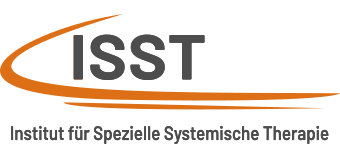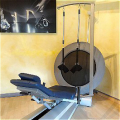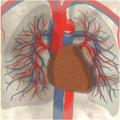Wasserstr. 25
59423 Unna
Germany
SkriptPunkt is a therapy for reading and spelling disorders (dyslexia), dyscalculia, ADHD, attention and perception disorders and giftedness. The AFS method, which is practised by certified therapists at ISST, is considered a particularly successful method and focuses on the individual areas of attention, function and symptoms.
ScriptPoint Therapy
Reading/spelling disorder (dyslexia)
Arithmetic disorder (dyscalculia)
People with good or average intelligence who develop dyslexia or dyscalculia usually perceive special impressions of the environment differently. Partial performance weaknesses contribute to the fact that insufficient attention is paid when symbols such as letters or numbers are to be learnt in a differentiated way.
Our support
- Counselling
- Differentiated diagnostics
- Expertise
- School career counselling
- Sensory perception training with toddlers and children
- Dyslexia training for children, adolescents and adults
- Dyscalculia training for children, young people and adults
- Support for gifted children
AFS method by certified ISST therapists
The AFS method is considered one of the most successful methods. It is personalised, i.e. its approach focuses on the individual requirements and possibilities of those affected.
AFS stands for the three main areas of support
- A = Attention
- F = Function (sensory perception)
- S = Symptom
Diagnostics
Diagnostics are carried out using the standardised AFS computer test procedure and are performed exclusively by experienced, qualified dyslexia/dyscalculia trainers. The computer test procedure is used to quickly and accurately identify the individual dyslexia/dyscalculia disorders of those affected. The results form the basis for the personalised training programme.
Therapy
The dyslexia training programme at ISST is carried out by qualified dyslexia trainers in individual sessions. Parents are involved in the support programme, as are the teachers at the respective school.
Help for gifted children too
Gifted children are characterised by very early, above-average abilities and interests. They are often significantly ahead of their peers in certain areas.
This can be in the areas of logic and maths, language, music, visual arts, sport or social skills, and sometimes several of these areas at the same time.
Highly gifted children are often expected to excel at school. This is the case for many, but not all. Unfortunately, abnormalities in the family, nursery or school are often the first reason for parents, carers and teachers to address the issue of giftedness.
In order to support the overall personality of each child, strengths should be developed through intellectual challenge and abnormalities such as work attitude, perception, motivation or social skills should be encouraged.
Our offer
- Comprehensive individual talent diagnostics (e.g. IQ test)
- Individual counselling and support
- Detailed information on support options based on the giftedness profile
- Support for children of kindergarten age
- Support for children of school age
- Help with academic, social and motivational difficulties
- Recommendations for organising support and everyday (family) life with gifted children

![therapie-afs-01[1] AFS Test](https://dev.isst-unna.de/wp-content/uploads/2024/02/therapie-afs-011-309x320.jpg)










